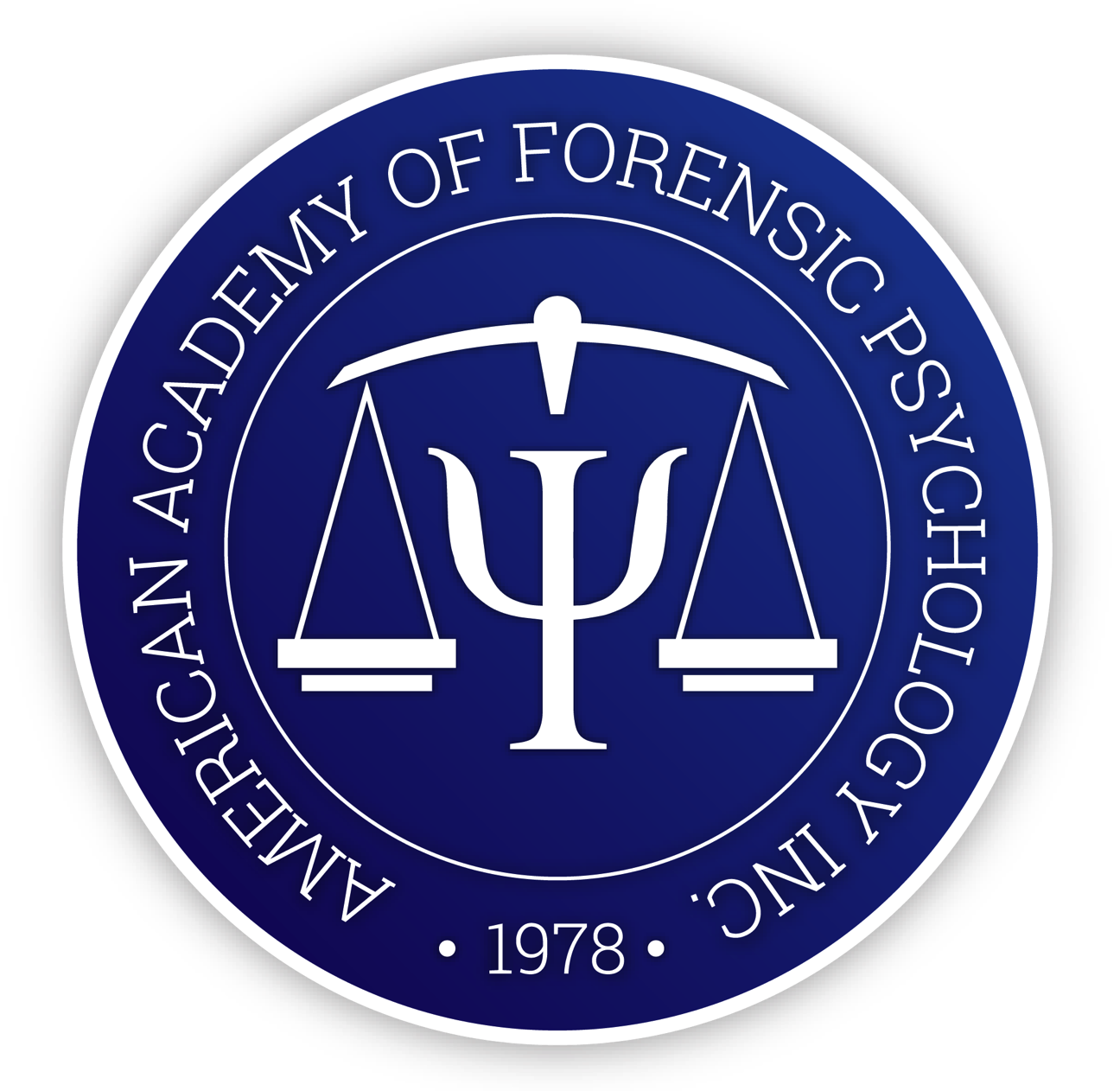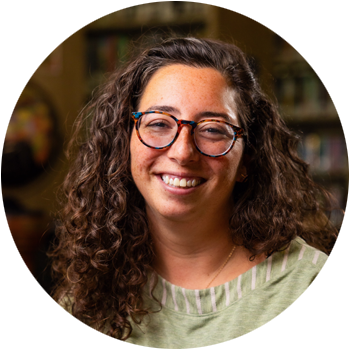December 5, 2025
9:00 AM - 1:00 PM
Pacific
4 Hours | 4 CEs
Live Training via Zoom
Angela Torres, Ph.D., ABPP (Forensic) and Laura Grossi, PhD, ABSMIP, present a live virtual professional training program on Restoration of Competency to Stand Trial in Community Settings in partnership with the American Academy of Forensic Psychology (AAFP).
This program covers aspects of outpatient competency restoration, with a focus on community-based restoration. The training starts with reviewing the history and importance of competency to stand trial, and the reasons behind the development of alternatives to inpatient restoration. It outlines how clinicians should approach community-based restoration, from receipt of a court order to treatment interventions to referral for post-restoration evaluation. This program addresses how to develop a restoration program in the community, strategies for restoration interventions, and appropriate documentation methods.
This program is designed for mental health professionals involved in the restoration of competency to stand trial, with a particular focus on community-based restoration. It is intended to serve professionals at all career stages and with varying levels of familiarity with the topic—whether they are just being introduced to the field or possess advanced knowledge. The content is relevant to both evaluators and treaters engaged in the competency restoration process. Recognizing that, in community settings, individuals such as case managers or emergency services workers—often with little to no forensic experience—may be tasked with restoration responsibilities, the program is designed to be accessible and introductory in nature. While it offers foundational knowledge, it is also applicable to seasoned professionals, particularly those working in public mental health and community-based roles where restoration duties are frequently assigned regardless of prior forensic training.
Training Outline:
Introduction to Competency to Stand Trial
- Why is it important
- Legal history
- Criteria for CST.
History Restoration
- Most states have restoration statutes
- Initially most/all inpatient restoration, outpatient came later
- Identified need for alternatives to inpatient restoration
General restoration information
- What is included in restoration generally
- Stats on restoration success, length of stay
- Predictors of unrestorability vs. restorability
Why was outpatient restoration started?
- Less restrictive treatment settings
- Cost associated with inpatient hospitalizations, not enough beds
- Competency crisis
- Growth of restoration admissions
- Lawsuits, Trueblood
- Creation of alternative pathways to restoration
How defendants get routed into outpatient restoration
- Opinion of evaluator
- Laws that limit inpatient to require civil commitment finding (with dangerousness component)
- Laws that limit inpatient to certain charges
- Things to consider if your state is not explicit about it:
- Is the barrier to competence something that can be treated in an inpatient setting?
- Can the person’s treatment needs be met in an outpatient setting?
Types of outpatient restoration; model explanation and state highlights
- Community based
- Residential based
- Jail based
How to provide outpatient restoration:
- Look at the court order
- Obtain records
- Review initial CST evaluation
- Police narrative
- Figure out if past restorations attempted, outcomes
- Do intake assessment of current functioning
- Develop treatment plan
Treatment planning
- Case management needs
- Medication needs
- Factual understanding
- Psychoeducational techniques
- Adult learning
- The Slater Method
Rational understanding
- CBT for psychosis
- Cognitive remediation
Capacity to assist counsel
- Motivational Interviewing
- Anger management, distress tolerance
- Reviewing with counsel
Activity: Review scenario, develop treatment plan
Common tools of restoration and the importance of multi-modal learning
- Written materials
- Orally delivered information
- Images/pictures, flashcards
- Videos
- Scenario-based discussions, hypotheticals
- Mock trial, reviewing court
Documentation and Conveying information to the court and evaluators
- Need to document interactions and treatment plans
- Avoid commenting about alleged offense(s)—check if limits in your jurisdiction
- Communication to court, including attorneys
- Communication with evaluators
When to know when you’re done with restoration
- When think competent
- When think need inpatient
- When think unrestorable

Intended Audience
This live program is intended for mental health and other allied professionals.

Experience Level
This live program is appropriate for beginner, intermediate, and advanced level clinicians.

CE / CPD Credit
APA, ASWB, CPA, NBCC: Click here for state and other regional board approvals.
Learning Objectives
Upon completion of this program you will be able to:

Describe the general requirements for competency to stand trial and common reasons for incompetency

Describe factors that are predictive of successful restoration of defendants

Describe common restoration techniques and proper documentation

Describe the importance of identifying individuals appropriate for outpatient restoration and cross-system collaboration

Live Event Policy
Registration for our live events is covered for one (1) person per purchase. If you would like to purchase for a group, please contact our group training team.
Event Communications
When registering, use an email that is active and that you check regularly. We are not responsible for communications not being received; if you do not add caps@paloaltou.edu to your email safe sender list, our emails are likely to end up in your spam or junk folders.
Cancellation Policy
Have a sudden change of plans and are unable to attend live? No worries; you will be given access to the on-demand version of the program once available. Please note if you attend live, no access to the recording will be given.
Event Conduct
Professional conduct is expected during our live programs. Our goal is to make our events as interactive as possible for all participants. We reserve the right to remove any participants who are disruptive, act unprofessionally, or who we are unable to verify their purchase.
Develop a Specialty Area of Practice
Transforming mental health professionals into experts
Expert Instructors
Professional training developed and delivered by the field's leading experts

CE Credit
Earn CE credit for meaningful professional training that will elevate your practice
Convenience & Flexibility
Learn at your own pace, from wherever you might be!
Program Partner
American Academy of Forensic Psychology (AAFP)
We are proud to partner with the American Academy of Forensic Psychology (AAFP) for this training. AAFP is a non-profit organization of board-certified forensic psychologists whose mission is to contribute to the development and maintenance of forensic psychology as a specialized field of study, research, and practice. The Academy does this by providing high-quality continuing education workshops, providing a forum for the exchange of scientific information among its members, and conferring awards upon outstanding students and practitioners in the field of forensic psychology.

CE Sponsorship Information
Palo Alto University, Continuing and Professional Studies (CONCEPT) is approved by theAmerican Psychological Association to sponsor continuing education for psychologists. PaloAlto University, Continuing and Professional Studies (CONCEPT) maintains responsibility for this program and its content. Palo Alto University, Continuing and Professional Studies(CONCEPT) is approved by the Canadian Psychological Association to offer continuing education for psychologists. Palo Alto University, Continuing and Professional Studies(CONCEPT), SW CPE is recognized by the New York State Education Department’s State Board for Social Work as an approved provider of continuing education for licensed social workers#SW-0356 and the New York State Education Department’s State Board for Mental HealthPractitioners as an approved provider of continuing education for licensed mental health counselors. #MHC-0073. Palo Alto University, Continuing and Professional Studies (CONCEPT) has been approved by NBCC as an Approved Continuing Education Provider, ACEP No. 6811.Programs that do not qualify for NBCC credit are clearly identified. CONCEPT ProfessionalTraining, #1480, is approved to offer social work continuing education by the Association ofSocial Work Boards (ASWB) Approved Continuing Education (ACE) program. Organizations, not individual courses, are approved as ACE providers. State and provincial regulatory boards have the final authority to determine whether an individual course may be accepted for continuing education credit. CONCEPT Professional Training maintains responsibility for this course. ACE provider approval period: 11/22/23-11/22/26. Social workers completing this course receive (clinical or social work ethics) continuing education credits.


